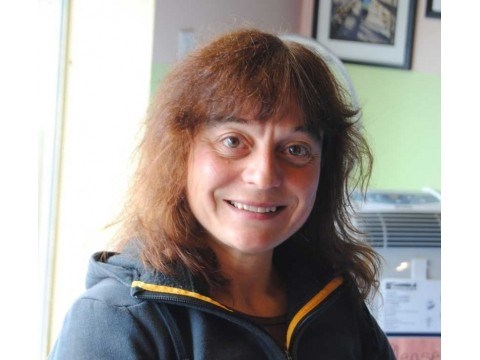Like any oil spill, the Exxon Valdez spill on March 24 th , 1989 cut a vast swathe of destruction in the water of Prince William Sound in Alaska. As the black sheen spread on the blue waters it ravaged everything it touched. Sea birds, salmon, otters, seals, people and their communities; a black, sticky shroud of destruction spared nothing.
It's been more than 20 years since the Exxon Valdez spill, but its deadly legacy, both environmental and human, is still something that researchers from the U.S. Fish and Wildlife Service feel compelled to revisit every year. Squamish Climate Action Network (CAN) coordinator Ana Santos spent three weeks with the service, studying the Prince William Sound area to find out how the spill still affects wildlife and the people who live there. Excerpts from an interview.
Q: How did this study trip happen?
A: I had already been in Alaska in 2007 for the same study, since this is done every two-three years. I found it interesting to realize that there were people looking into how things have developed 20 years later. With the oil spill happening in the Gulf of Mexico, I thought this would be the right time to go and raise awareness back home.
Q: How did the spill affect wildlife in Prince William Sound? Are the affects of the spill still visible?
A: The area is not a dead zone anymore, but some fish species like the herring are not there anymore. In terms of the sea birds, 300,000 died to begin with and thousands of sea otters have died. In areas that were only lightly oiled, they are recovering. In areas that were badly hit, there's just nothing. There were 22 of these Orca whales that died and they haven't been able to replace them. We are going to lose them.
Q: How did life change for these communities around Prince William Sound?
A: In Cordova, you had this community that was completely geared towards the herring fish, and they made $4 million a year. All of a sudden the herring collapses and it doesn't come back. Many people had to sell their boats, their fishing licenses and many just moved away. Some people committed suicide. In Cordova alone, there were 12 people who committed suicide, and one of them was the former mayor. Suddenly, people had lost their livelihood and with that came alcohol, drug abuse, depression and suicide just went up through the roof.
Q: What did people in these communities have to say?
A: They hope that life will go back to what it used to be. People I talked to couldn't contain their tears. They talk with a lot of sadness about how their community fell apart at that point.
Q: What did you do in those three weeks?
A: They divide the sound into regions and as you go around, you record everything you see. Every single animal and every single bird is recorded. They had been doing this before the spill, so they have ways to compare whether these animals and birds are coming back or not. The area overall is recovering, but still some areas remain that are badly affected.
Q: Any comparison you see to the BP spill?
A: I haven't been there yet, but I already feel very skeptical about the latest news that said there's going to be very little impact from this oil in the Gulf of Mexico, or they have recovered as much as they say. Having been to this study and knowing what the consequences of this oil spill have been, I'm skeptical of these claims.
Q: Why do you think oil spills keep happening?
A: I talked to people at the oil terminals and they are pretty open to say that regulations and safety standards were overlooked. When there are plans to open the terminal and get a pipeline there are a lot of promises of safety, but it doesn't work that way. The tankers were supposed to go through inspections every time they entered the harbour, but that didn't happen. The same goes for safety procedures, when it happened everything was out of date, there was no regulation.
Q: Why should the oil spills matter to us here?
A: It should matter to us because it could be us next. We have the proposed pipeline from the Alberta tar sands to our coast. We could have this type of oil tanker traveling up and down the coast. It could be us next. We don't make our life on fishing, but there are many communities that do, and we like to eat fish and we like fishing as a recreational pursuit. All that could just stop.




